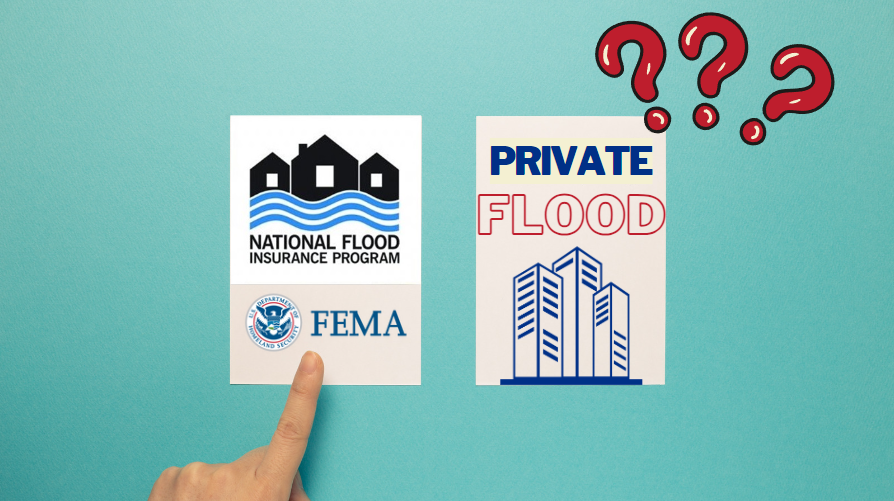Savannah, GA Flooding Explained: Understanding the Chatham County Flood Risks
Savannah, GA, is known for its charming historic streets, vibrant culture, and stunning coastal scenery. However, its beauty comes with a price: the city is prone to significant flooding risks. Understanding these risks is crucial for homeowners, property buyers, and anyone looking to protect their investments in this picturesque but vulnerable region.
In this blog, we’ll delve deep into the flood risks in Savannah, explore how flood zones impact mortgage requirements, discuss available flood insurance options, and share strategies for flood mitigation and protection.
The Geography of Savannah and Tybee Island (Coastal Georgia)
Savannah’s location in coastal Georgia places it at the intersection of natural beauty and environmental vulnerability. The city is situated near the Atlantic Ocean, with the Savannah River forming its northern boundary. The area’s low elevation and proximity to tidal waters make it particularly susceptible to flooding.
One of the key geographical factors contributing to Savannah’s flood risk is its flat topography. Much of the city lies at or near sea level, which means that even small changes in water levels can lead to significant flooding. Additionally, Savannah’s extensive network of rivers, marshes, and estuaries further complicates its flood dynamics, as these water bodies can quickly overflow during heavy rainfall or storm surges.
Why Savannah is Prone to Structural Flooding
Savannah’s flood risks are exacerbated by a combination of natural and human-induced factors. Climate change, for example, has led to rising sea levels, which increase the likelihood of coastal flooding. The region’s tropical climate also brings frequent heavy rains, especially during hurricane season, which can overwhelm drainage systems and lead to flash floods.
The city’s location along the Atlantic coast makes it vulnerable to storm surges, where strong winds from hurricanes or tropical storms push seawater onto the land. These surges can cause sudden and severe flooding, particularly in low-lying areas. As sea levels continue to rise, the risk of flooding during long periods of rain or extreme weather events will only grow.
Understanding Flood Zones in Savannah
FEMA designates flood zones across the United States to indicate varying levels of flood risk. In Savannah, these zones play a crucial role in determining building codes, insurance requirements, and mortgage approvals.
FEMA Flood Zones Explained
The city of Savannah is significantly impacted by various flood zones as defined by FEMA. These zones categorize areas based on their flood risk score, helping residents understand their exposure to potential flood loss.
High-risk areas are designated as Flood Zone V, where the chances of floodwater inundation are substantial. Conversely, low-risk areas may still experience increased flooding due to factors such as sea-level rise and changing weather patterns.
Understanding FEMA Flood Zones is crucial for residents, particularly in areas like the City of Savannah, where flood risk scores can vary significantly. The zones are categorized into high-risk areas and low-risk areas, reflecting the likelihood of floodwater intrusion.
Those in high-risk areas face the necessity to purchase flood insurance, often through the National Flood Insurance Program’s guidelines. As sea-level rise accelerates, the chances of increased flooding become more pronounced, highlighting the importance for property owners to obtain a flood insurance policy if the structure is located in these vulnerable zones.
Residents are encouraged to stay informed about the current flood conditions and heed flood warnings issued by local authorities. For those unsure about their flood zone designation, it is advisable to contact the Chatham County office for assistance.
Additionally, the University of Georgia provides resources on flood storage and mitigation strategies, helping homeowners minimize potential flood loss. Through the Community Rating System, communities can also earn discounts on their insurance premiums, making it more feasible for residents to protect their homes against the threat of flooding.
For property owners, it is crucial to purchase flood insurance, especially in high-risk zones. The national flood insurance program’s community rating system can help lower premiums for residents who take proactive measures.
If you live in or near the city of Savannah, it is wise to contact the Chatham County office to understand local flood regulations and flood warning systems. If you’re concerned about the current flood situation, consider whether you need a flood insurance policy if the structure is at risk. Flood storage solutions can also mitigate damage and help you prepare for future events.
What is a Flood Zone?
Flood zones are geographic areas defined by FEMA that represent the risk of flooding. These zones are categorized based on the likelihood of flooding in any given year, with some zones considered high-risk and others low-risk. Understanding which flood zone your property is in is essential for making informed decisions about flood insurance and property management.
Different Flood Zones in Savannah
Savannah’s flood zones range from high-risk areas, known as Special Flood Hazard Areas (SFHAs), to low- and moderate-risk zones. The most common high-risk zones in Savannah include:
- Flood Zone AE: This is one of the most prevalent high-risk zones in Savannah. It represents areas that have a 1% annual chance of flooding (often referred to as the “100-year flood zone”). Properties in this zone are required to have flood insurance if they are mortgaged through federally-backed lenders.
- Flood Zone V: This zone applies to coastal areas exposed to wave action in addition to storm surges. Properties in Zone V face the highest risk of flooding and damage from waves and are subject to strict building requirements.
- Moderate- to Low-Risk Zones (Zones B, C, and X): These zones have a lower probability of flooding but are not completely risk-free. While flood insurance is not mandatory in these areas, it is still highly recommended.
Learn more about each flood zone through our dedicated playlist below:
FEMA Flood Insurance Rate Map (FIRM)
FEMA’s Flood Insurance Rate Maps (FIRMs) are tools used to identify flood hazards, assess flood risks, and set insurance rates. These maps are based on hydrological and hydraulic studies and are periodically updated to reflect changes in flood risks. Homeowners and property buyers should regularly consult FIRMs to understand their flood zone designation and related insurance requirements.
The Impact of Savannah Flood Risk on Property Owners
Flood risk is not just a theoretical concern; it has real implications for property owners in Savannah, particularly when it comes to mortgages, insurance, and property value.
What Factors Contribute to Flood Risk?
Several factors contribute to a property’s flood risk, including:
- Distance to Water: Properties closer to rivers, creeks, and the coastline are at higher risk of flooding, especially during heavy rains or storm surges.
- Elevation: The elevation of your property relative to sea level is a critical determinant of flood risk. Lower elevations generally correspond to higher flood risks.
- Replacement Cost: The cost to rebuild your property after a flood can influence insurance premiums. Homes with higher replacement costs may face higher premiums.
- Type of Flooding: The nature of flooding—whether from storm surges, flash floods, or tidal influences—affects the risk level and required insurance coverage.
- Flooding Frequency: Historical data on how often an area floods can provide insight into future flood risks and reduce the risk.
How to Check Your Flood Risk Score
Homeowners can assess their flood risk using tools such as FEMA’s online mapping service or private flood risk assessment tools. These resources allow you to input your address and receive detailed information about your flood zone and base Flood Elevation (BFE), obtain a flood insurance policy, and other relevant data.
Understanding the Base Flood Elevation (BFE)
The BFE is a critical metric used to determine flood insurance requirements and building regulations in flood-prone areas. It represents the elevation that floodwaters are expected to reach during a 1% annual chance flood event. Properties built above the BFE may qualify for lower insurance premiums, reduce flood risks, and, meet new flood plain management guidelines. while those below it could face higher costs.
Using Flood Studies and Flood Maps
Chatham County provides resources and flood studies to help residents understand their flood risks. These studies, combined with FEMA’s FIRMs, offer valuable insights into potential flood hazards, helping property owners make informed decisions about insurance and flood mitigation.
Mortgage Requirements in Different Flood Zones
Flood zones significantly impact mortgage requirements, especially for properties located in high-risk areas.
Understanding Mortgage Requirements for Flood Zones
High-Risk Flood Zones (Special Flood Hazard Areas – SFHAs)
In high-risk flood zones such as Flood Zone AE or Zone V, federally-backed mortgage lenders require homeowners to purchase flood insurance. This requirement ensures that properties at a high risk of flooding are adequately protected, reducing the financial impact on both the homeowner and the lender in the event of a flood. It’s important to note that properties in SFHAs have a 26% chance of experiencing a flood during the life of a 30-year mortgage.
Moderate- to Low-Risk Flood Zones (Zones B, C, and X)
For properties in moderate- to low-risk zones, flood insurance is not mandated by law but may still be recommended by lenders. These areas are less likely to experience flooding, but the risk is not zero. Homeowners in these zones often pay lower premiums for flood insurance, making it a cost-effective way to protect their investments.
Coastal Flood Zones
Properties in coastal flood zones face unique challenges, including exposure to storm surges and tidal flooding. Lenders may require additional insurance coverage for these areas, and building codes may impose stricter regulations to reduce flood damage.
The Role of the NFIP and Private Flood Insurance in Mortgage Approval
Meeting Federal Mortgage Requirements
The National Flood Insurance Program (NFIP) provides flood insurance to property owners in participating communities, including those in Savannah. For properties in SFHAs, NFIP coverage is often the minimum requirement for mortgage approval. However, private flood insurance can also meet these requirements, offering potentially better coverage or pricing options.
Letter of Map Amendment (LOMA)
If you believe your property has been incorrectly classified in a high-risk flood zone, you can apply for a LOMA through FEMA. A LOMA can remove the mandatory flood insurance requirement if it shows that your property is above the BFE. This process typically involves submitting an elevation certificate and other documentation to FEMA. Many times this might be a request that the Chatham County Engineering Department has to approve if the property is in a floodway.
My Experience Changing My Flood Zone
As a flood insurance expert, I’ve personally gone through the LOMA process, and it was an eye-opening experience. Here’s a brief overview of my journey:
Identifying the Issue: I discovered that my property was mistakenly mapped in a high-risk flood zone. This error not only increased my flood insurance premiums but also made it harder to secure favorable mortgage terms.
The LOMA Application Process: I gathered the necessary documentation, including an elevation certificate and a detailed property survey, to prove that my home was above the Base Flood Elevation. I then submitted these documents to FEMA for review.
The Outcome: After several weeks of waiting, I received confirmation that my property had been reclassified to a lower-risk zone. This change significantly reduced my flood insurance costs and made it easier to manage my mortgage.
Advice for Homeowners: If you believe your property is incorrectly mapped, don’t hesitate to apply for a LOMA. It can be a time-consuming process, but the potential savings on insurance premiums and the peace of mind are well worth the effort.
Flood Insurance Options for Savannah Residents
Flood insurance is a critical component of property protection in Savannah, and understanding your options can help you make the best choice for your situation.
What is the NFIP (Federal Flood)?
The NFIP is a federal program providing flood insurance to participating communities’ property owners. It’s designed to reduce the financial impact of flooding by offering affordable insurance coverage. In Savannah, most homeowners with mortgages must purchase flood insurance policies if their property is in a high-risk flood zone. Flood insurance can cover things like the building and contents coverage.
Obtaining a Flood Insurance Policy
Purchasing a flood insurance policy through the NFIP is relatively straightforward. You can contact a local insurance agent in the Savannah area, get a quote from a flood insurance expert, or contact your insurance agent. Besides flood insurance, they can also help you protect your Savannah GA home with other insurance products. Flood insurance is also available through private insurance companies.
What is Private Flood Insurance?
Unlike the federal government program, private flood insurance is through private insurance companies. The cost of flood insurance is determined differently than the national flood insurance program. Flood maps are not used as much as information on flooding, specific flood risks, and even climate change. They also offer flood insurance on barrier island properties like Tybee Island which many times the national flood insurance program will not offer coverage on. Their insurance can cover the structure as well as contents and additional living expenses.
Savannah is a major area where private flood insurance companies offer flood insurance. Whether it’s with a federal flood or a private flood insurance policy it’s typically separate from regular property insurance
Preventing Flood Damage
Flooding is an ever-present risk in Savannah, GA, but understanding that risk is the first step toward protecting your home and investment. From comprehending the impact of your flood zone on mortgage requirements to navigating the complexities of flood insurance, being informed is crucial. Whether you’re a homeowner, a potential buyer, or simply someone concerned about flood risks, taking proactive measures can save you from significant financial loss and stress.
As you consider your options, remember that flood risks are not static—they evolve with changes in climate, sea levels, and urban development. Stay updated with the latest flood maps, review your insurance policies regularly, and don’t hesitate to explore options like the Letter of Map Amendment if you believe your property’s flood zone designation is inaccurate.
At the end of the day, protecting your property from flooding is not just about compliance with mortgage requirements; it’s about securing peace of mind. With the right knowledge and tools, you can confidently safeguard your home against the unpredictable nature of floods. Whether it’s through flood insurance, mitigation efforts, or simply staying informed, you have the power to reduce your flood risk and ensure that your property remains a safe and secure place for years to come.
Information contained on this page is provided by an independent third-party content provider. This website make no warranties or representations in connection therewith. If you are affiliated with this page and would like it removed please contact editor @producerpress.com



.png?width=1280&height=720&name=NEW%20Thumbnail%20(12).png)











